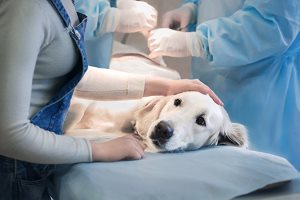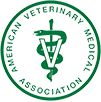Plants That Are Poisonous to Pets
Pets are incredibly curious creatures who are not above snacking on anything that interests them. When that snack is a plant, problems can occur. Many plants are poisonous if eaten and can cause symptoms ranging from mild discomfort to death. Below is a list of some of the most common plants that sicken pets.
Aloe Vera
The leaves of the aloe vera plant offer quick relief for burns, but eating these plants can cause vomiting, diarrhea, decreased appetite, changes in urine color and tremors in both dogs and cats.
Amaryllis
These flowering plants provide a splash of color during the holiday season, but they can be poisonous to pets. Keep bulbs out of the reach of your cats and dogs, as these are the most toxic part of the plant. Sampling an amaryllis plant can cause drooling, loss of appetite, vomiting, diarrhea, abdominal pain, tremors and depression.
Azalea and Rhododendron
Eating azalea or rhododendron plants can cause symptoms that range from mild to life threatening. The severity of the symptoms vary depending on how much of the plant your cat or dog eats, but it only takes a small amount to make an animal sick. Symptoms include vomiting, diarrhea, drooling, loss of appetite, abnormal heart rate, weakness, abdominal pain, tremors, blindness, seizures and comas.
Baby's Breath
Found often in floral arrangements, these white flowers can cause vomiting, diarrhea, loss of appetite, lethargy and depression if they are ingested.
Buttercups
Cheerful yellow buttercups certainly do not look very threatening, but they can cause drooling, vomiting, diarrhea, weakness, tremors or seizures if eaten. Buttercup flowers are very bitter and cause mouth ulcers. In most cases, pets decide that buttercups are not so tasty after all, after a few bites.
Daffodils
The bulbs are also the most toxic part of daffodils. If your pet eats a daffodil, it may experience drooling, vomiting and diarrhea. Eating several daffodils can cause low blood pressure, heart arrhythmias, tremors and convulsions.
Holly, Mistletoe and Poinsettias
Eating one of these classic holiday plants can cause a range of symptoms. Although poinsettias have a bad reputation, eating them really only causes mild irritation to the mouth or stomach. Mistletoe is more dangerous. Eating it can result in gastrointestinal disorders, heart problems, hallucinations, vomiting and diarrhea. Consuming holly can also cause vomiting and diarrhea, but your pet may be most annoyed by the tiny cuts caused by the spiny leaves.
Morning Glories
You may notice some very unusual behavior if your pet eats morning glories. Symptoms include hallucinations, stomach upset, tremors, loss of appetite and difficulty controlling movements or balance.
Mountain Laurel
Mountain laurel plants produce attractive flowers in the spring, but eating these plants can be deadly. If your pet consumes mountain laurel, it may begin to drool and experience vomiting, diarrhea, heart rhythm abnormalities, tremors, coma and even death.
Tomato Plant
If your pet cannot resist eating the leaves and stems of a tomato plant, you may notice drooling, loss of appetite, diarrhea, drowsiness, confusion, weakness, slow heart rate, dilated pupils or changes in behavior.
Tulips
Munching on a tulip bulb can cause stomach problems, loss of appetite, drooling, convulsions and cardiac problems.
If you are concerned that your pet has eaten a dangerous plant, call us immediately. The sooner treatment begins, the more likely that the outcome will be positive. If you have other concerns about your pet's health, schedule an appointment today.
If your pet has eaten a dangerous plant outside of normal office hours, contact your nearest animal hospital immediately.
3 Human Foods You Should Never Feed Your Pet
It's a rare pet parent who has never slipped a treat to a pet. After all, those pleading eyes are awfully hard to ignore when you are enjoying your favorite meal. Unfortunately, some foods that are perfectly healthy for humans can cause serious health problems for pets. Keep your pet in good health by making these three foods off limits.
1. Chocolate
Chocolate contains theobromine and caffeine, two substances that are toxic to pets. Although most cats have no interest in chocolate, your dog may be happy to help you finish a box of chocolates. Eating chocolate can cause vomiting, diarrhea, fever, rigid muscles, rapid breathing, increased heart rate, low blood pressure, seizures and death. Symptoms vary depending on the amount and type of chocolate consumed and your pet's weight. Baking chocolate contains the highest amount of caffeine and theobromine, followed by semi-sweet chocolate and milk chocolate.
2. Onions, Garlic and Chives
Eating onions, garlic and chives can cause an upset stomach and can also damage your pet's red blood cells. Although cats generally suffer the most if they consume these foods, dogs can also be affected if they eat enough onions, garlic or chives.
3. Grapes and Raisins
Both grapes and raisins can cause kidney damage and should never be given to pets.
Bloomfield Animal Hospital is a trusted name in pets’ preventive, medical,
surgical, and
emergency care in Lakewood, CA. With a 30-year history as a family-owned pet clinic, it provides modern services in a warm, friendly environment. It’s one of the few veterinary hospitals to be
AAHA-accredited.
Dr. Jose Arambulo, owner and chief veterinarian, is experienced in treating eye, ear, and skin disorders and is especially interested in internal medicine, dentistry, and soft tissue surgery. He earned his BS in Medical Technology from the
University of Santo Tomas and his Doctor of Veterinary Medicine from the
University of the Philippines. He completed clinical evaluation for veterinary medicine at
Purdue University in Indiana and was a veterinarian at Banfield and California before acquiring Bloomfield Animal Hospital.
Dr. Arambulo is an active member of the
American Veterinary Medical Association,
Veterinary Information Network,
Southern California Veterinary Medical Association,
Southern California Filipino Veterinary Medical Association, and the
Lakewood Chamber of Commerce.
Our Traveling Surgeon,
Dr. Zachery Smith, is a Diplomate of the
American College of Veterinary Surgeons. He specializes in complex orthopedic and soft tissue surgery. While training, he worked with some of the best orthopedic surgeons in the country. He has lectured both locally and internationally. Dr. Smith plays a leading role at Veterinary Orthopedics of California, which is dedicated to providing high-level surgical services to pets.
Our visiting physician,
Dr. Fred Brewer, is a veterinary cardiologist board-certified by the
American College of Veterinary Internal Medicine. He completed his Bachelor of Science in Psychobiology at
UCLA and earned his veterinary degree from
Cornell University in 2009. Later, he completed a one-year general rotating internship at the California Animal Hospital Veterinary Specialty Group in West Los Angeles and a three-year cardiology residency at Cornell University.
Featured Articles
- Five points to
know about heart disease in pets
- Fight
back
against allergies that affect your pet's health and quality of life
- Four ways we
are
lifting financial barriers to support your pet's best health
- FAQs
about spaying and neutering: A common, low-risk procedure with many benefits for your pet
- All You
Need To Know About Canine Core Vaccines
- We
Relieve
Symptoms, Treat The “Source,” and Prevent Complications of Canine Allergic Skin Diseases
- High-Quality
Care
from Local Animal Clinic
- Quality Veterinary Care
for
your Pet from your Lakewood Vet Hospital
- Budget
friendly and quality care for your pet at Bloomfield Animal Hospital
- Bloomfield Animal Hospital offers cardiology services from board-certified
vet
- Services Provided by a Board Certified Veterinary Cardiologist at
Bloomfield Animal
Hospital
- Bloomfield
Animal Hospital Is A Budget Friendly Animal Hospital That Can Save Your Pet And Your Budget
- Pet care services in
Lakewood, California, for the furry members of your family
- Enjoy many happy,
quality years with your best friend, exceptional dog care services in Lakewood, CA
- Veterinary
care
center in Lakewood, CA offers tips for senior pet care
- Veterinarian in Lakewood shares recent understandings of pet allergies
- What must you know about pet vaccinations? Everything you need is
available in
Lakewood
- Vet
in
Lakewood shares tips to control pet allergies
- Pet dental care in
Lakewood for cats, too!
- Why choose
spay and neuter services in Lakewood
- Keep your
furry friend healthy and disease-free with vaccinations for your pet in Lakewood
- Caring
for
your fur family – when to seek veterinary services in Lakewood
- Lakewood, CA
residents,
help your furry friends thrive with our excellent family pet care
- Your fur
family members are in good hands at our Lakewood, CA veterinary clinic
- Lakewood, CA
family
pet clinic offers advanced services and benefits for furry clients
- Looking for quality,
caring
vets for your pet in the Lakewood area?
- My
Cat
Grooms Excessively — Is Something Wrong?
- Preparing Your
Home
for Pets
- Chronic Pain in Pets
- Preparing for
Your Next Vet Visit
- Assistance
Dogs
Offer Many Benefits
- Plants That
Are
Poisonous to Pets
- Stress Relief for
Pets
- Feline
Leukemia Virus: What You Need to Know
- Animal
Dermatology: Caring for Your Pet's Skin





















